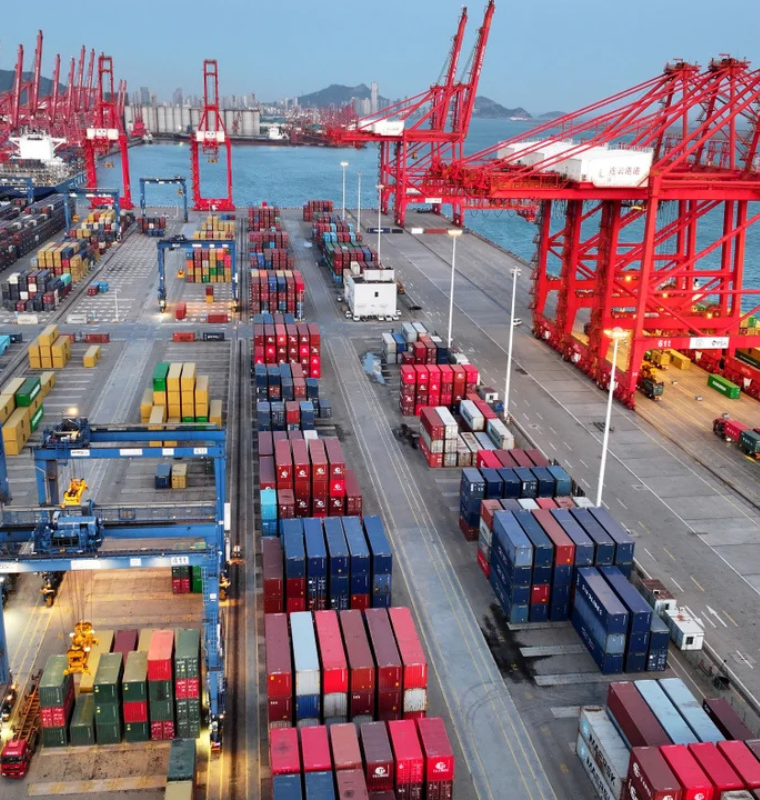Asia Pacific Stocks Slide as Global Tech Sell Off Accelerates
Asia Pacific Stocks Slide as Global Tech Sell Off Accelerates
By
Rachel Steinberg
Last updated:
November 19, 2025
First Published:
November 19, 2025

Photo: Business Plus
Asia Pacific markets moved largely lower on Wednesday as a deepening global tech sell off rippled through major regional indexes. Investors followed Wall Street’s sharp declines from the previous session, with concerns about overheated artificial intelligence valuations weighing heavily on sentiment. Although some markets saw pockets of resilience, the overall tone remained cautious as rising bond yields and falling semiconductor stocks fueled uncertainty.
Japan was in focus as the Nikkei 225 slipped 0.2% during choppy trading, dragged down primarily by tech names. The broader Topix held flat but displayed similar volatility. Analysts pointed to persistent pressure on high growth companies, a trend that has repeatedly hit global markets in recent weeks. At the same time, Japan’s bond market added another layer of stress. Yields on 10 year Japanese government bonds climbed to 1.759%, their highest level since 2007. Longer term yields surged even more sharply, with the 20 year bond reaching 2.811%—a level not seen since 1999—while the 30 year yield moved near record territory at 3.334%. Rising borrowing costs often weigh on technology and growth sectors, amplifying market fragility.
The sell off across Japanese tech was led by semiconductor related names. Advantest, a major testing equipment maker, initially plunged more than 4% before trimming losses to about 0.88%. Chipmaker Renesas also struggled, falling around 4.4% as investors rotated out of risk sensitive hardware stocks. This weakness mirrored the overnight slump in U.S. tech giants, where concerns about AI profitability and demand cycles pressured indexes.
Elsewhere in Asia, South Korea’s Kospi slipped 0.54% as its own semiconductor leaders came under strain. Samsung Electronics traded 0.51% lower and SK Hynix dropped 0.79%, giving back some early session losses but remaining firmly in negative territory. The small cap Kosdaq also fell 0.58%, reflecting broad risk aversion across Korean markets.
Australia’s S&P/ASX 200 declined 0.13%, with financials and consumer names offsetting brief strength in mining shares. Meanwhile, Hong Kong’s Hang Seng Index fell 0.45% as tech sentiment weakened across the region. However, mainland China’s CSI 300 edged up 0.21%, supported by selective buying in state linked sectors. Hong Kong listed shares of Xiaomi dropped more than 4% after the company warned that smartphone prices could rise in 2026 due to sharply increasing memory chip costs tied to growing AI demand.
Indian equities opened lower as well. The Nifty 50 slipped 0.16%, while the Sensex eased 0.14%, reflecting the global risk off mood.
Losses in Asia followed another difficult day on Wall Street. U.S. futures were steady during early Asian trading hours, but investors remained cautious after major benchmarks posted sizable declines. The Dow Jones Industrial Average fell 498.50 points, or 1.07%, closing at 46,091.74. The S&P 500 dropped 0.83% to 6,617.32, marking its fourth consecutive decline and the longest losing streak since August. The Nasdaq Composite slid 1.21% to finish at 22,432.85, marking its fifth negative session in the past six days. Analysts attributed much of the weakness to heavy selling in mega cap tech names and concerns that AI related earnings growth may not justify current valuations.
Adding to the risk off sentiment, Bitcoin briefly dipped below $90,000, signaling a broader pullback in speculative assets. Traders viewed the drop as another indication that investors were de-risking across both traditional markets and digital assets.
With rising bond yields, global tech weakness and volatile sentiment converging at the same time, Asia Pacific markets remain highly sensitive to further swings on Wall Street. Investors are now watching for signs of stabilization in AI linked sectors and potential changes in monetary conditions that could ease pressure on growth assets.
Popular articles
Subscribe to unlock premium content
Why Some People Hire Professional Bystanders to Simulate Social Interaction in Public Spaces
.png)
The Rise of Micro-Memorials People Paying to Preserve Tiny Personal Moments in Luxury Miniature Sculptures
.png)
The Market of Paying Strangers to Share Their Most Embarrassing Stories in a Private Setting
.png)
Why Some People Hire Professional Bystanders to Simulate Social Interaction in Public Spaces
.png)
The Rise of Micro-Memorials People Paying to Preserve Tiny Personal Moments in Luxury Miniature Sculptures
.png)
Why Some People Hire Professional Bystanders to Simulate Social Interaction in Public Spaces
.png)








